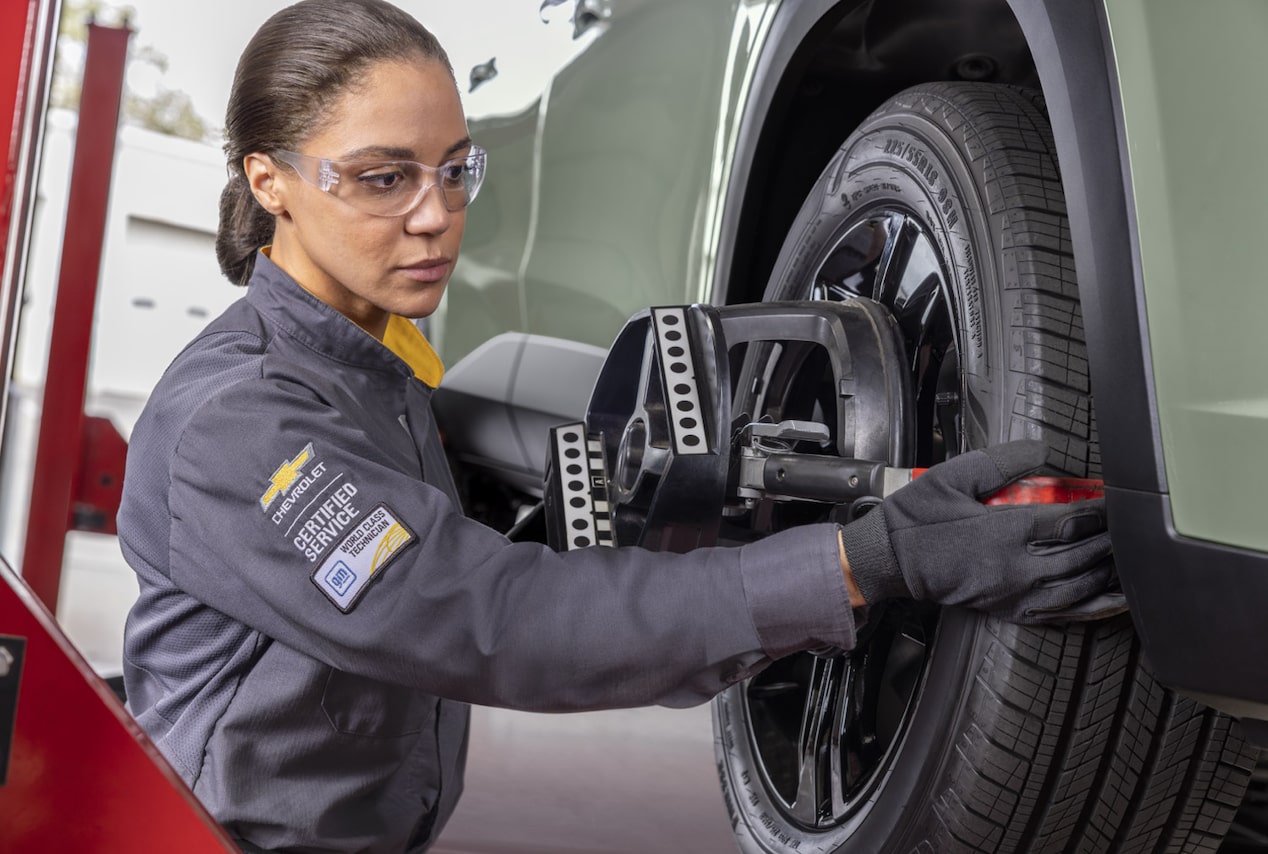All Categories
Featured
Regular tire turnings are an important yet usually neglected facet of vehicle upkeep. This simple treatment, which entails altering the position of your tires, helps keep also put on throughout all 4 tires, ultimately improving your vehicle's performance and long life. Let's check out the significance of tire rotations and the tangible benefits they supply.
What Is a Tire Turning?
![]()
Tire rotation entails relocating the tires to different settings on your automobile. The front tires might be exchanged with the rear ones, or they might be crossed from one side of the vehicle to the various other. The rotation pattern depends on factors like your automobile's drivetrain (front-wheel drive, rear-wheel drive, or all-wheel drive) and the kind of tires you make use of.
Why Are Normal Tire Rotations Crucial?
Tire turnings make certain that all tires use down evenly. Unequal tire wear occurs normally due to the fact that various tires experience varying degrees of tension based upon their setting. For instance:
Front tires on front-wheel-drive cars deal with more jobs like steering, braking, and velocity, triggering them to wear quicker.
Rear tires on rear-wheel-drive automobiles bear similar burdens, resulting in uneven wear patterns if left untreated.
![]()
Without normal turnings, some tires may put on out too soon, demanding substitute quicker than expected.
Advantages of Normal Tire Rotations
Boosted Performance and Handling. Also tire wear helps maintain well balanced grip across all 4 tires. This balance is critical for optimum vehicle handling, particularly in challenging driving problems such as rain or snow.
Extended Tire Lifespan. Routine rotations distribute use more uniformly, minimizing the demand for frequent substitutes and conserving you money over time.
![]()
Enhanced Fuel Effectiveness. Erratically used tires can increase rolling resistance, requiring your engine to work harder and consume even more gas. Appropriately rotated tires make certain smoother adventures and far better fuel economic climate.
Safety. Used tires compromise grip and stopping efficiency, increasing the threat of mishaps. Revolving your tires routinely maintains consistent walk depth and ensures a more secure driving experience.
Exactly How Often Should You Revolve Your Tires?
Most experts recommend turning your tires every 5,000 to 7,500 miles, but this can vary based on your vehicle's producer standards. It's a good practice to integrate tire turnings with regular services like oil modifications for comfort.
Signs You Need a Tire Rotation
Unequal walk endure your tires.
Recognizable vibration while driving.
Trouble taking care of the car on damp or unsafe roads.
Last Thoughts
Normal tire rotations are a straightforward yet impactful maintenance task that boosts lorry performance, enhances safety, and conserves you money. By dedicating to this method, you'll appreciate a smoother driving experience and a much longer life expectancy for your tires. Consult your automobile's guidebook or a relied on auto mechanic to ensure you're complying with the best rotation schedule and pattern for your automobile.
What Is a Tire Turning?

Tire rotation entails relocating the tires to different settings on your automobile. The front tires might be exchanged with the rear ones, or they might be crossed from one side of the vehicle to the various other. The rotation pattern depends on factors like your automobile's drivetrain (front-wheel drive, rear-wheel drive, or all-wheel drive) and the kind of tires you make use of.
Why Are Normal Tire Rotations Crucial?
Tire turnings make certain that all tires use down evenly. Unequal tire wear occurs normally due to the fact that various tires experience varying degrees of tension based upon their setting. For instance:
Front tires on front-wheel-drive cars deal with more jobs like steering, braking, and velocity, triggering them to wear quicker.
Rear tires on rear-wheel-drive automobiles bear similar burdens, resulting in uneven wear patterns if left untreated.

Without normal turnings, some tires may put on out too soon, demanding substitute quicker than expected.
Advantages of Normal Tire Rotations
Boosted Performance and Handling. Also tire wear helps maintain well balanced grip across all 4 tires. This balance is critical for optimum vehicle handling, particularly in challenging driving problems such as rain or snow.
Extended Tire Lifespan. Routine rotations distribute use more uniformly, minimizing the demand for frequent substitutes and conserving you money over time.

Enhanced Fuel Effectiveness. Erratically used tires can increase rolling resistance, requiring your engine to work harder and consume even more gas. Appropriately rotated tires make certain smoother adventures and far better fuel economic climate.
Safety. Used tires compromise grip and stopping efficiency, increasing the threat of mishaps. Revolving your tires routinely maintains consistent walk depth and ensures a more secure driving experience.
Exactly How Often Should You Revolve Your Tires?
Most experts recommend turning your tires every 5,000 to 7,500 miles, but this can vary based on your vehicle's producer standards. It's a good practice to integrate tire turnings with regular services like oil modifications for comfort.
Signs You Need a Tire Rotation
Unequal walk endure your tires.
Recognizable vibration while driving.
Trouble taking care of the car on damp or unsafe roads.
Last Thoughts
Normal tire rotations are a straightforward yet impactful maintenance task that boosts lorry performance, enhances safety, and conserves you money. By dedicating to this method, you'll appreciate a smoother driving experience and a much longer life expectancy for your tires. Consult your automobile's guidebook or a relied on auto mechanic to ensure you're complying with the best rotation schedule and pattern for your automobile.
Latest Posts
Don’t Miss Special Auto Repair Specials in Chicago at Montclare Auto Repair
Published en
1 min read
Safeguard Your Investment with Professional Gutter Installment
Published en
1 min read
Discover the Storied Past of Deauville Inn: From Speakeasy to Seafood Haven
Published en
2 min read
More
Latest Posts
Don’t Miss Special Auto Repair Specials in Chicago at Montclare Auto Repair
Published May 25, 25
1 min read
Safeguard Your Investment with Professional Gutter Installment
Published May 22, 25
1 min read
Discover the Storied Past of Deauville Inn: From Speakeasy to Seafood Haven
Published May 20, 25
2 min read